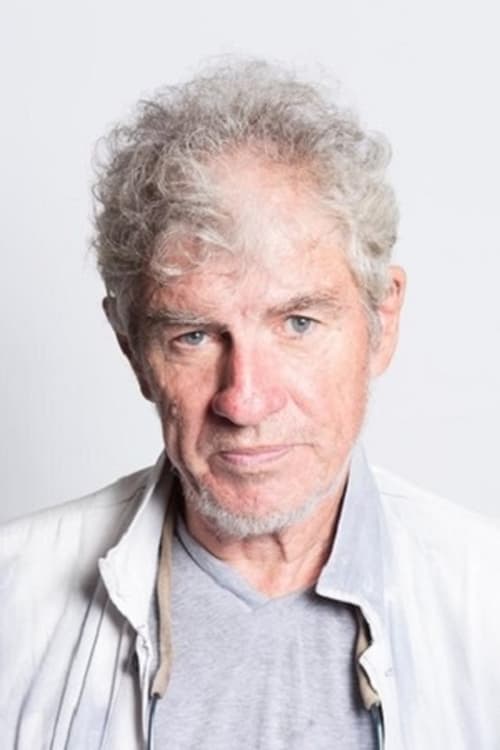Discover
-

Wong Kar-Wai
Director -

Faye Wong
Theme Song Performance -

Christopher Doyle
Director of Photography -

Jacky Pang
Production Supervisor -

Joe Gawler
Colorist -

Kwan Lee-Na
Makeup Artist -

William Chang Suk-Ping
Costume Design -

Eric Kwong Chi-Leung
Editor
-
 eliasmata
6/23/2021 3:58:08PM
eliasmata
6/23/2021 3:58:08PM
A week has passed since I watched this film. I wanted to let it sit with me for a bit before watching it again and giving it a proper response. Films like this, which are hyped to an unbelievable degree, end up sending an audience to end up watching it with elevated expectations, only to be ultimately disappointed afterwards. It’s a fact that many films suffer considerably from this aspect of our cinephile culture, I’ve experienced it with many films before. _Chungking Express_ has a reputation that I think may be beyond what it intended, with it being an Out-of-Print title at Criterion, the prices for the Blu-ray being obnoxiously high, and the constant barrage of exuberant reactions from many who’ve seen the film. This kind of superficial intrigue alone can set me up with expectations that are likely to not be met. Every film that is being made does not intend to create this façade of a reputation, it’s just a film. Most creators are not there to make this kind of reaction happen out of their films, and yet, we somehow continue to do so… I’m rambling, aren’t I? I think this is just my criticism with film culture regarding the hyping of certain films. And yet, somehow, despite my attempts to condense these (potential) hyperbolic reactions, _Chungking Express_ may have exceeded my expectations. Perhaps that makes me a hypocrite regarding this issue, but then again, if I enjoyed the film to the extent at which it met my expectations (or surpassed them in this case), am I to be negatively looked at for criticizing these actions, but essentially having them work on me specifically with _Chungking Express_? If so, then let it be I guess. Regardless, this film was one of the best experiences I have had in a while. It is surprisingly easy for me to connect with this film and its characters. All of them have a certain struggle they must deal with, whether it’d be relationship problems, not being able to move on, or even simply failing to accomplish a certain task. It’s all relatively simple if I think about it, there isn’t much in terms of characterization for many of the subjects in the film, and yet, I don’t believe there needs to be that much. Simply leaving it the way it is works extremely well, and I’m willing to believe that Wong Kar-Wai understood this. There are statements that explain how Wong Kar-Wai essentially wrote scenarios for the film the morning of and shot the scenes later in the day. Easily, this could lead to a jumbled mess of separate ideas thrown together in the editing room at a feature length time. And yet, he stays consistent in the thematic ideas he proposes. Shot chronologically, the ideas set up through the first half of the film, have threads that continue onwards towards the second half. One of my favorite directors, Krzysztof Kieślowski, uses the elements of interconnectedness within his films. Regardless of how different the stories might be, there is something there that connects each story together. In _Chungking Express_, that idea is essentially brought out brazenly, to the extent at which it initially shocked me. That one moment at the half-way mark of the film, comes at you so fast, that afterwards you’re left gasped for what the film turns into. It’s a brazen switch of narrative, and yet, it’s still leaves the film to be connected altogether. The expectations for love are very much tricky in it of themselves, as is shown with each character that one sees in the film. It’s not simple, it isn’t black and white, but rather a spectrum that one must align itself with, and possibly adapt to if necessary. To deal with the aspects of love in a film can either be hokey and misguided, or it can be meticulous and interesting. _Chungking Express_ finds a middle ground between these two, not dealing too much towards the intellectual side of these issues, but not straying away too far towards the clichéd. Wong Kar-Wai doesn’t treat these characters as caricatures. Sure, there are some humorous; sometimes childish, moments with Faye, but it doesn’t take away from her character. As with every subject in the film, there is something to latch on to. All around the thematic ideas of love, or the lack thereof, worked together so well, that it leads to these characters feeling authentic. Not simply words on a script. I really don’t know what else to say. I was awestruck the first time, and I feel even more so now. This is a film that really hit it home with me. More so than other films in the past. I’ll say this, by the end of the film, I had similar vibes to when I finished _Lost in Translation_ for the first time. Soon afterwards, that film was my favorite of all time for years. Film culture is fascinating, it may lead to disappointing outcomes based on hyperbolic expectations, or it may lead to a film experience that you never thought were possible. I’m beginning to lean towards the latter with _Chungking Express_. What a difference a day made, what a difference a film makes. --- But then again, it all comes down to personal preference, so for all I know you may hate this film. I don’t know. You do you, and I’ll do me. Got it?
-
 BornKnight
1/30/2024 7:27:12PM
BornKnight
1/30/2024 7:27:12PM
Filmed into the post production of two years of filming the Wuxia epic "Ashes of Time", with low resources, this movie is another example that we don't need millions of USD to make a masterpiece. Wong Kar-Wai have a personal style of using melancholic characters distorted stories, using elaborate soundtracks in the background. This movie show two drama and crime stories about two lovesick policeman and their search over his relationship with a woman, always in a 0,01cm encounter of distance between them. The first story stars Takeshi Kaneshiro as a cop obsessed by his breakup with a woman named May (replaced emotionally with letters and old pineapple cans), and his encounter with a mysterious drug smuggler. The second stars Tony Leung as a police officer roused from his gloom over the loss of his flight attendant girlfriend by the attentions of a quirky snack bar worker called Express - referred in the title (Faye Wong). Both stories circles around Chungking Mansions, a 60's complex of buildings supposed to be residential, but that is made up of many independent low-budget hotels, shops and other services, filled with stores and stalls in the building cater to wholesalers shipping goods to Africa and South Asia, and amid the gigantic Central–Mid-Levels escalator with a length of 800m and one of the two highlights locations of the movie. Both sequences have a unique visual approach sometimes intimate, sometimes frenetic with a beautiful use of color among the chaos that reminds me of the works of the photographer Saul Leiter. On the unique soundtrack using ocidental musics we have the use for the first story is Dennis Brown's "Things in Life" and "Baroque", composed by Michael Galasso, can be heard twice during the first part of the movie. On the second "California Dreamin'" by The Mamas & the Papas plays in the key scenes in the second story, which also features Faye Wong's Cantonese cover version of "Dreams" by The Cranberries. In the plans of making there was a third movie but since it was too long it was released as a separate movie, Fallen Angels in 1995. Another must watch classic with a unique style that differentiates it from other Hong Kong productions - I gave it a 8,7 out of 10,0 / A rate.
-
 CinemaSerf
8/26/2023 3:34:55PM
CinemaSerf
8/26/2023 3:34:55PM
This is probably my favourite film from Kar-Wai Wong. It tells the stories of two Hong Kong Police officers. The former, the dashing Takeshi Kaneshiro, who is struggling to come to terms with his recently ended relationship of five years. By way of a means to closure, he purchases a tin of pineapple each day with the expiry date of May 1st (then he will be 25 years old). Either they will have reconciled by then, or he must look for a new love - and perhaps an enigmatic, somewhat shady, lady in a raincoat and wearing a blonde wig might offer a solution? The second features the slightly older regular with this director, Tony Leung, who has also split from his long-term partner only to find a new girl working at the stall he gets his meal from in the evening. She is equally enigmatic - and has a penchant for "California Dreamin'" played very loudly too. Both stories are throughly enjoyable to watch, the humour is plentiful and subtle - and we are never quite sure how anything is going to pan out, or even if the two stories are going to end up over-lapping - right until the end. The hand held photography helps the personalities develop well, offering us intimacy and also an opportunity to become more immersed in the two gently developing character studies that are imbued with the colours and culture of this bustling urban landscape.







Tony Leung Chiu-wai
Cop 663Faye Wong
FayeBrigitte Lin
Woman in Blonde WigKwan Lee-Na
MayVickie Eng
Bar Maid (uncredited)Takeshi Kaneshiro
He Zhiwu / Cop 223Valerie Chow
Air HostessLynne Langdon
Complaining Customer (uncredited)